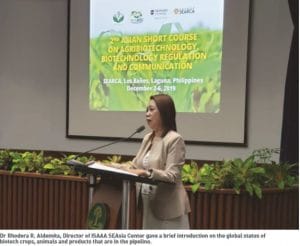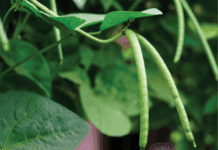BY JAYASYALINY JAYARAJ

LOS BANOS: Twenty-five delegates from eight Asian countries attended the second Asian Short Course on Agribiotechnolgy (ASCA) from Dec 2-6. The event was put together by the Southeast Asian Regional Center for Graduate Study and Research in Agriculture (SEARCA), the International Service for the Acquisition of Agribiotech Applications (ISAAA) Southeast Asia, the Malaysian Buiotechnology Information Centre and Monash University Malaysia.
The first such course was held in Malaysia last year and the second held here hosted delegates from Taiwan, Malaysia, China, Thailand, Pakistan, Indonesia, Vietnam and Philippines. ASCA aims to expose Asian policymakers, regulators, scientists and industry players from both public and private sectors to biosafety regulations and their impact on national biosafety systems.
It also focuses on connecting the dots between research, effective communication and science-based regulations enabling more research to leave the lab and move to the next level of implication. ASCA gives Asian regulators and scientists an ideal alternative for capacity building programmes in these areas, where previously they travelled to US universities for such short courses. This did not only reduce their training budget but also provided the opportunity to more personnel, enabling the creation of bigger pool of experts.










